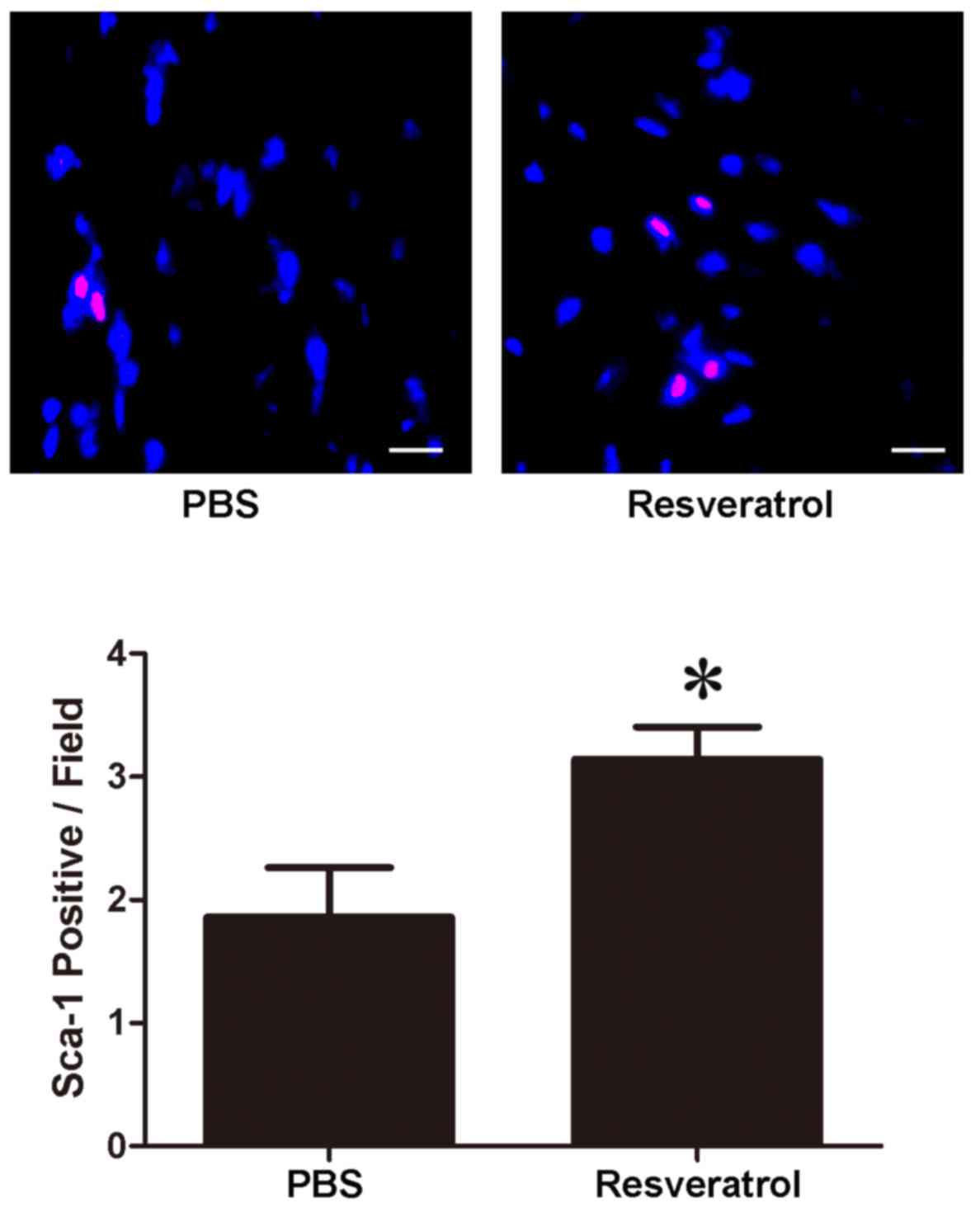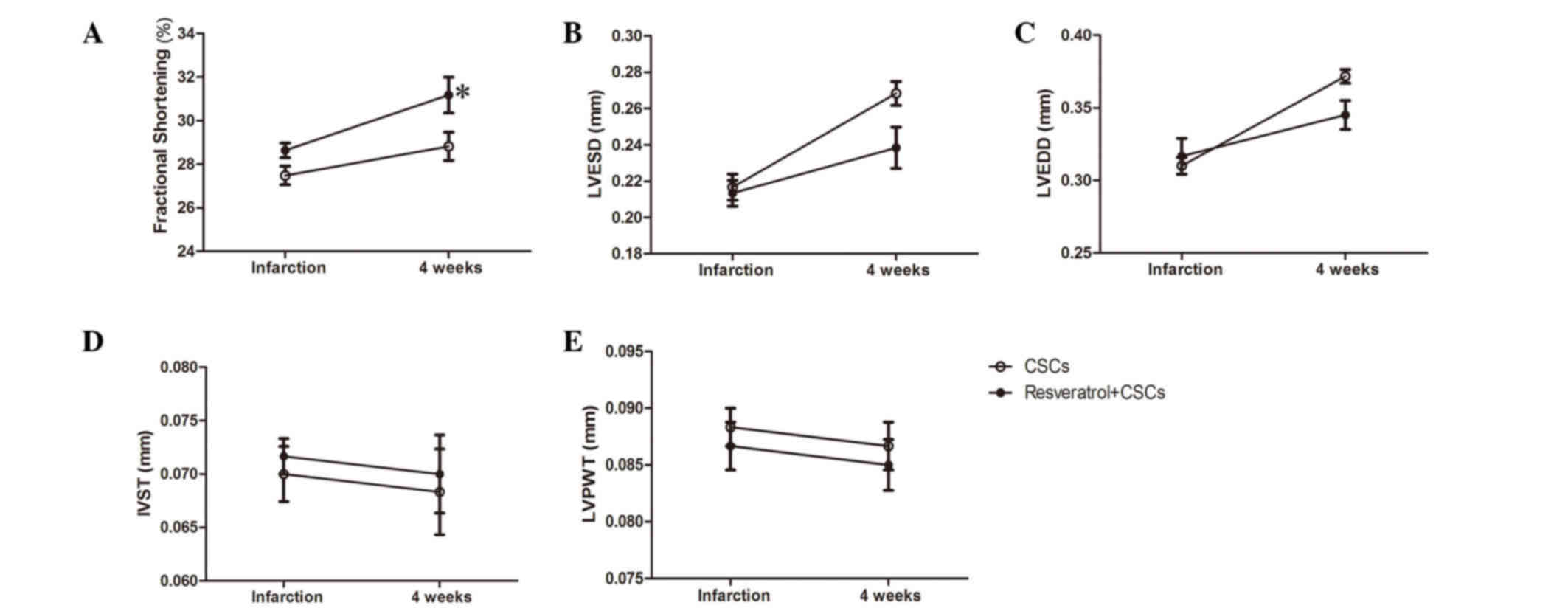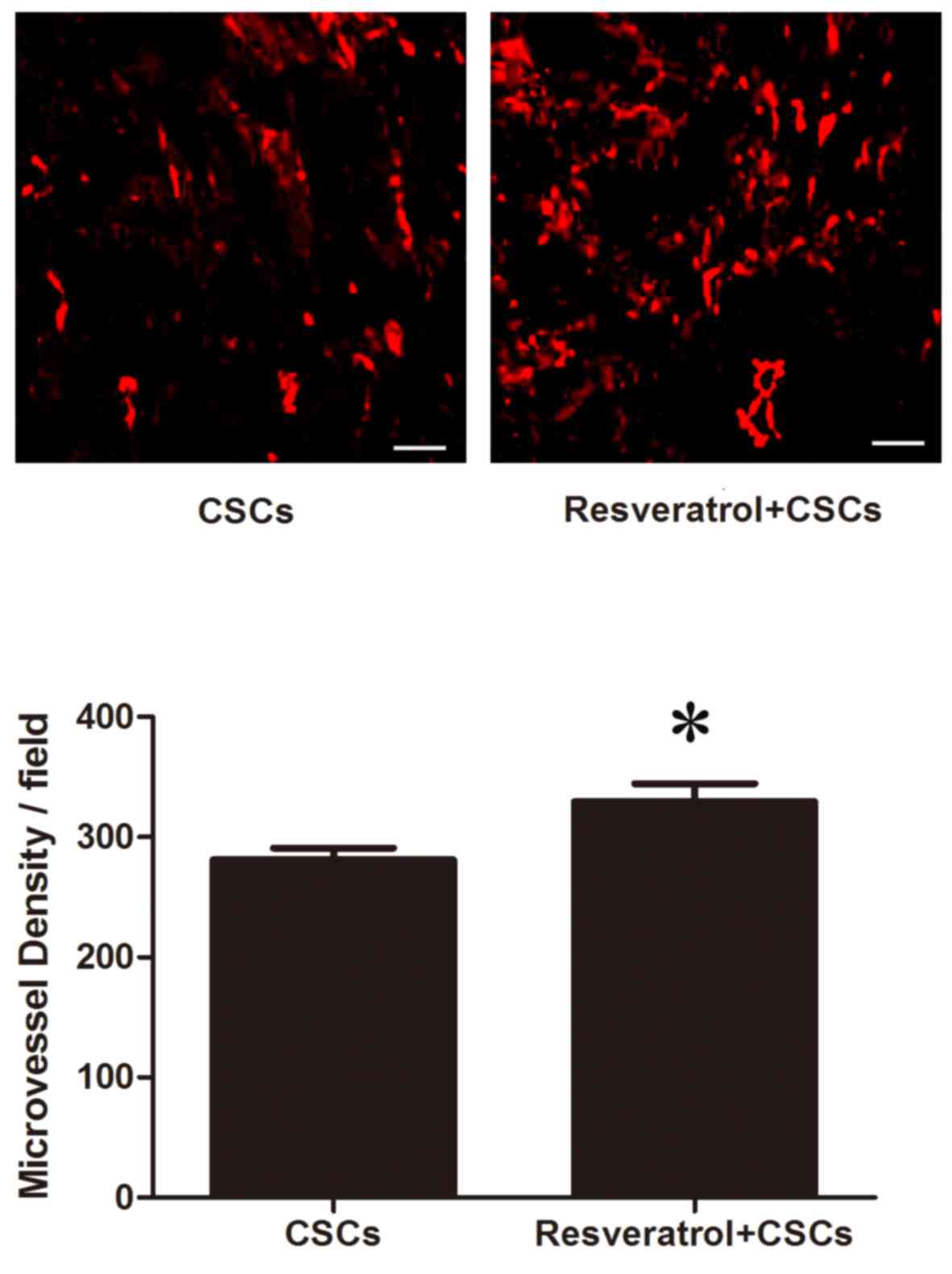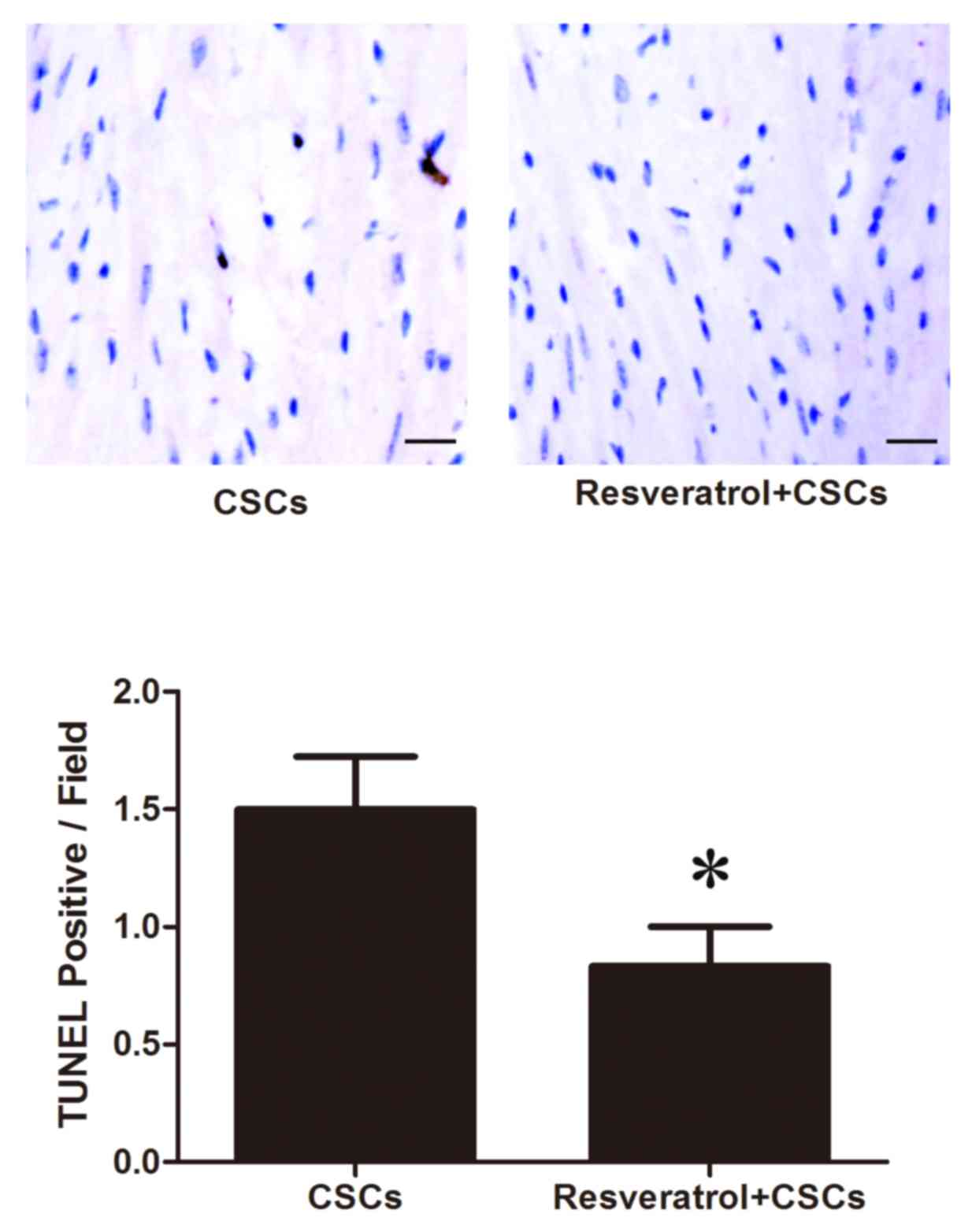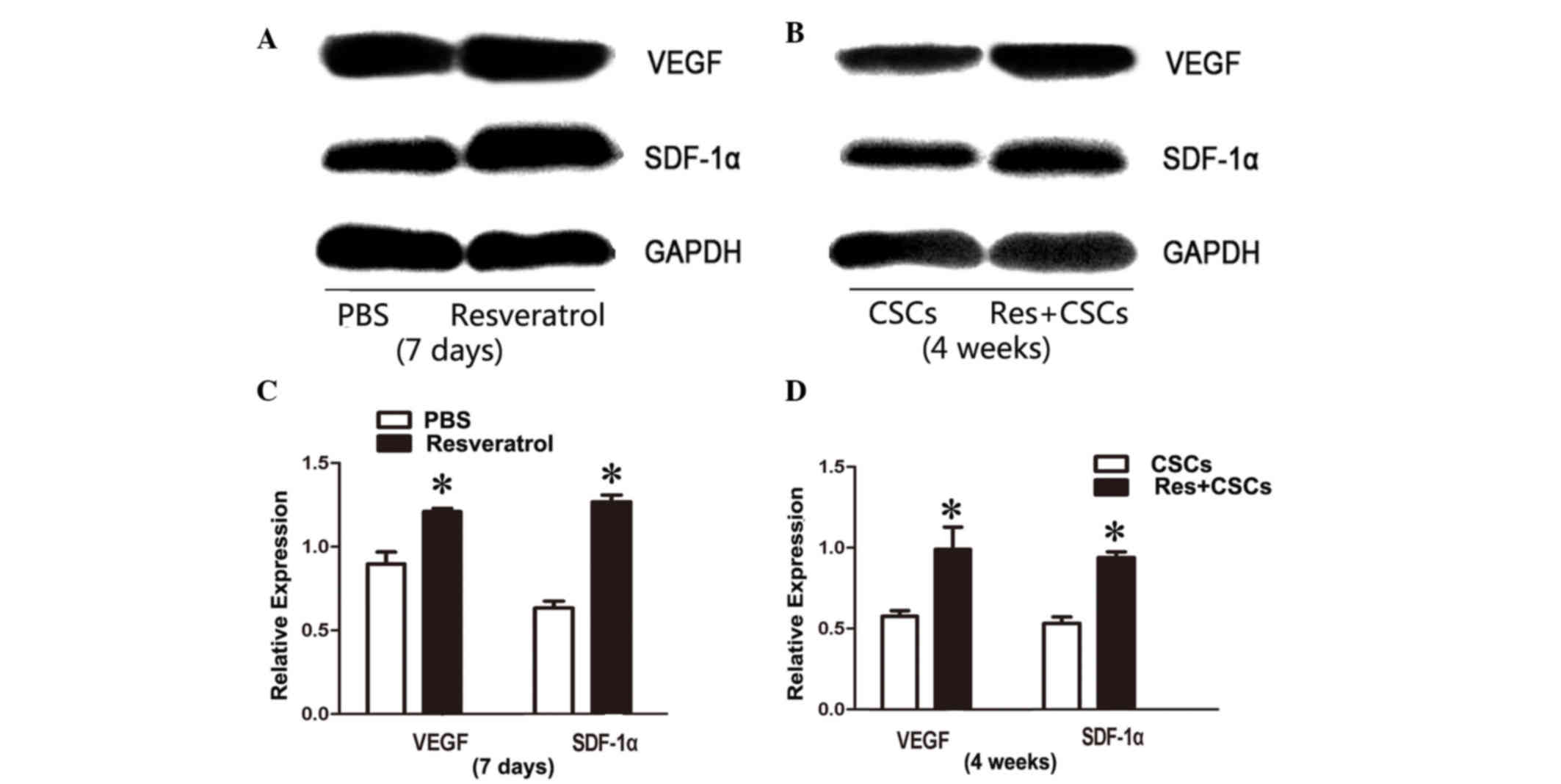|
1
|
Waring CD, Vicinanza C, Papalamprou A,
Smith AJ, Purushothaman S, Goldspink DF, Nadal-Ginard B, Torella D
and Ellison GM: The adult heart responds to increased workload with
physiologic hypertrophy, cardiac stem cell activation, and new
myocyte formation. Eur Heart J. 35:2722–2731. 2014. View Article : Google Scholar : PubMed/NCBI
|
|
2
|
Noseda M, Abreu-Paiva M and Schneider MD:
The quest for the adult cardiac stem cell. Circ J. 79:1422–1430.
2015. View Article : Google Scholar : PubMed/NCBI
|
|
3
|
Nadal-Ginard B, Ellison GM and Torella D:
The cardiac stem cell compartment is indispensable for myocardial
cell homeostasis, repair and regeneration in the adult. Stem Cell
Res. 13:615–630. 2014. View Article : Google Scholar : PubMed/NCBI
|
|
4
|
Hattori F: CD117, adult cardiac stem cell
marker, is transiently expressed in methothelial epicardial cells.
J Mol Cell Cardiol. 49:711–712. 2010. View Article : Google Scholar : PubMed/NCBI
|
|
5
|
Müller-Ehmsen J, Krausgrill B, Burst V,
Schenk K, Neisen UC, Fries JW, Fleischmann BK, Hescheler J and
Schwinger RH: Effective engraftment but poor mid-term persistence
of mononuclear and mesenchymal bone marrow cells in acute and
chronic rat myocardial infarction. J Mol Cell Cardiol. 41:876–884.
2006. View Article : Google Scholar : PubMed/NCBI
|
|
6
|
Duran JM, Makarewich CA, Sharp TE,
Starosta T, Zhu F, Hoffman NE, Chiba Y, Madesh M, Berretta RM, Kubo
H and Houser SR: Bone-derived stem cells repair the heart after
myocardial infarction through transdifferentiation and paracrine
signaling mechanisms. Circ Res. 113:539–552. 2013. View Article : Google Scholar : PubMed/NCBI
|
|
7
|
Doyle B, Sorajja P, Hynes B, Kumar AH,
Araoz PA, Stalboerger PG, Miller D, Reed C, Schmeckpeper J, Wang S,
et al: Progenitor cell therapy in a porcine acute myocardial
infarction model induces cardiac hypertrophy, mediated by paracrine
secretion of cardiotrophic factors including TGFbeta1. Stem Cells
Dev. 17:941–951. 2008. View Article : Google Scholar : PubMed/NCBI
|
|
8
|
Gnecchi M, Zhang Z, Ni A and Dzau VJ:
Paracrine mechanisms in adult stem cell signaling and therapy. Circ
Res. 103:1204–1219. 2008. View Article : Google Scholar : PubMed/NCBI
|
|
9
|
Mazo M, Cemborain A, Gavira JJ, Abizanda
G, Araña M, Casado M, Soriano M, Hernández S, Moreno C, Ecay M, et
al: Adipose stromal vascular fraction improves cardiac function in
chronic myocardial infarction through differentiation and paracrine
activity. Cell Transplant. 21:1023–1037. 2012. View Article : Google Scholar : PubMed/NCBI
|
|
10
|
Boyle AJ, Yeghiazarians Y, Shih H, Hwang
J, Ye J, Sievers R, Zheng D, Palasubramaniam J, Palasubramaniam D,
Karschimkus C, et al: Myocardial production and release of MCP-1
and SDF-1 following myocardial infarction: Differences between mice
and man. J Transl Med. 9:1502011. View Article : Google Scholar : PubMed/NCBI
|
|
11
|
Takahashi M: Role of the SDF-1/CXCR4
system in myocardial infarction. Circ J. 74:418–423. 2010.
View Article : Google Scholar : PubMed/NCBI
|
|
12
|
Escoté X, Miranda M, Menoyo S,
Rodríguez-Porrata B, Carmona-Gutiérrez D, Jungwirth H, Madeo F,
Cordero RR, Mas A, Tinahones F, et al: Resveratrol induces
antioxidant defence via transcription factor Yap1p. Yeast.
29:251–263. 2012. View
Article : Google Scholar : PubMed/NCBI
|
|
13
|
Wang Z, Chen Y, Labinskyy N, Hsieh TC,
Ungvari Z and Wu JM: Regulation of proliferation and gene
expression in cultured human aortic smooth muscle cells by
resveratrol and standardized grape extracts. Biochem Biophys Res
Commun. 346:367–376. 2006. View Article : Google Scholar : PubMed/NCBI
|
|
14
|
Bradamante S, Barenghi L and Villa A:
Cardiovascular protective effects of resveratrol. Cardiovasc Drug
Rev. 22:169–188. 2004. View Article : Google Scholar : PubMed/NCBI
|
|
15
|
Das S and Das DK: Resveratrol: A
therapeutic promise for cardiovascular diseases. Recent Pat
Cardiovasc Drug Discov. 2:133–138. 2007. View Article : Google Scholar : PubMed/NCBI
|
|
16
|
Fukuda S, Kaga S, Zhan L, Bagchi D, Das
DK, Bertelli A and Maulik N: Resveratrol ameliorates myocardial
damage by inducing vascular endothelial growth factor-angiogenesis
and tyrosine kinase receptor Flk-1. Cell Biochem Biophys. 44:43–49.
2006. View Article : Google Scholar : PubMed/NCBI
|
|
17
|
Das S, Alagappan VK, Bagchi D, Sharma HS,
Maulik N and Das DK: Coordinated induction of iNOS-VEGF-KDR-eNOS
after resveratrol consumption: A potential mechanism for
resveratrol preconditioning of the heart. Vascul Pharmacol.
42:281–289. 2005. View Article : Google Scholar : PubMed/NCBI
|
|
18
|
Brunner S, Winogradow J, Huber BC, Zaruba
MM, Fischer R, David R, Assmann G, Herbach N, Wanke R,
Mueller-Hoecker J and Franz WM: Erythropoietin administration after
myocardial infarction in mice attenuates ischemic cardiomyopathy
associated with enhanced homing of bone marrow-derived progenitor
cells via the CXCR-4/SDF-1 axis. FASEB J. 23:351–361. 2009.
View Article : Google Scholar : PubMed/NCBI
|
|
19
|
Shen L, Gao Y, Qian J, Sun A and Ge J: A
novel mechanism for endothelial progenitor cells homing: The
SDF-1/CXCR4-Rac pathway may regulate endothelial progenitor cells
homing through cellular polarization. Med Hypotheses. 76:256–258.
2011. View Article : Google Scholar : PubMed/NCBI
|
|
20
|
Lyngbaek S, Schneider M, Hansen JL and
Sheikh SP: Cardiac regeneration by resident stem and progenitor
cells in the adult heart. Basic Res Cardiol. 102:101–114. 2007.
View Article : Google Scholar : PubMed/NCBI
|
|
21
|
Torella D, Ellison GM, Karakikes I and
Nadal-Ginard B: Resident cardiac stem cells. Cell Mol Life Sci.
64:661–673. 2007. View Article : Google Scholar : PubMed/NCBI
|
|
22
|
Torella D, Ellison GM, Méndez-Ferrer S,
Ibanez B and Nadal-Ginard B: Resident human cardiac stem cells:
Role in cardiac cellular homeostasis and potential for myocardial
regeneration. Nat Clin Pract Cardiovasc Med. 3:(Suppl 1). S8–S13.
2006. View Article : Google Scholar : PubMed/NCBI
|
|
23
|
Chamuleau SA, Vrijsen KR, Rokosh DG, Tang
XL, Piek JJ and Bolli R: Cell therapy for ischaemic heart disease:
Focus on the role of resident cardiac stem cells. Neth Heart J.
17:199–207. 2009. View Article : Google Scholar : PubMed/NCBI
|
|
24
|
Tang JM, Wang JN, Zhang L, Zheng F, Yang
JY, Kong X, Guo LY, Chen L, Huang YZ, Wan Y and Chen SY: VEGF/SDF-1
promotes cardiac stem cell mobilization and myocardial repair in
the infarcted heart. Cardiovasc Res. 91:402–411. 2011. View Article : Google Scholar : PubMed/NCBI
|
|
25
|
Mokni M, Limam F, Elkahoui S, Amri M and
Aouani E: Strong cardioprotective effect of resveratrol, a red wine
polyphenol, on isolated rat hearts after ischemia/reperfusion
injury. Arch Biochem Biophys. 457:1–6. 2007. View Article : Google Scholar : PubMed/NCBI
|
|
26
|
Wu JM and Hsieh TC: Resveratrol: A
cardioprotective substance. Ann N Y Acad Sci. 1215:16–21. 2011.
View Article : Google Scholar : PubMed/NCBI
|
|
27
|
Zhao T, Zhao W, Chen Y, Ahokas RA and Sun
Y: Vascular endothelial growth factor (VEGF)-A: Role on cardiac
angiogenesis following myocardial infarction. Microvasc Res.
80:188–194. 2010. View Article : Google Scholar : PubMed/NCBI
|
|
28
|
Lakkisto P, Kytö V, Forsten H, Siren JM,
Segersvärd H, Voipio-Pulkki LM, Laine M, Pulkki K and Tikkanen I:
Heme oxygenase-1 and carbon monoxide promote neovascularization
after myocardial infarction by modulating the expression of
HIF-1alpha, SDF-1alpha and VEGF-B. Eur J Pharmacol. 635:156–164.
2010. View Article : Google Scholar : PubMed/NCBI
|
|
29
|
Knudsen AR, Kannerup AS, Grønbaek H,
Andersen KJ, Funch-Jensen P, Frystyk J, Flyvbjerg A and Mortensen
FV: Effects of ischemic pre- and postconditioning on HIF-1α, VEGF
and TGF-β expression after warm ischemia and reperfusion in the rat
liver. Comp Hepatol. 10:32011. View Article : Google Scholar : PubMed/NCBI
|
|
30
|
Kaga S, Zhan L, Matsumoto M and Maulik N:
Resveratrol enhances neovascularization in the infarcted rat
myocardium through the induction of thioredoxin-1, heme oxygenase-1
and vascular endothelial growth factor. J Mol Cell Cardiol.
39:813–822. 2005. View Article : Google Scholar : PubMed/NCBI
|
|
31
|
Penumathsa SV, Thirunavukkarasu M, Koneru
S, Juhasz B, Zhan L, Pant R, Menon VP, Otani H and Maulik N: Statin
and resveratrol in combination induces cardioprotection against
myocardial infarction in hypercholesterolemic rat. J Mol Cell
Cardiol. 42:508–516. 2007. View Article : Google Scholar : PubMed/NCBI
|
|
32
|
Cottler-Fox MH, Lapidot T, Petit I, Kollet
O, DiPersio JF, Link D and Devine S: Stem cell mobilization.
Hematology Am Soc Hematol Educ Program. 419–437. 2003.PubMed/NCBI
|
|
33
|
Zou YR, Kottmann AH, Kuroda M, Taniuchi I
and Littman DR: Function of the chemokine receptor CXCR4 in
haematopoiesis and in cerebellar development. Nature. 393:595–599.
1998. View Article : Google Scholar : PubMed/NCBI
|
|
34
|
Lapidot T: Mechanism of human stem cell
migration and repopulation of NOD/SCID and B2mnull NOD/SCID mice.
The role of SDF-1/CXCR4 interactions. Ann N Y Acad Sci. 938:83–95.
2001. View Article : Google Scholar : PubMed/NCBI
|
|
35
|
Askari AT, Unzek S, Popovic ZB, Goldman
CK, Forudi F, Kiedrowski M, Rovner A, Ellis SG, Thomas JD,
DiCorleto PE, et al: Effect of stromal-cell-derived factor 1 on
stem-cell homing and tissue regeneration in ischaemic
cardiomyopathy. Lancet. 362:697–703. 2003. View Article : Google Scholar : PubMed/NCBI
|
|
36
|
Pillarisetti K and Gupta SK: Cloning and
relative expression analysis of rat stromal cell derived factor-1
(SDF-1)1: SDF-1 alpha mRNA is selectively induced in rat model of
myocardial infarction. Inflammation. 25:293–300. 2001. View Article : Google Scholar : PubMed/NCBI
|
|
37
|
Loh SA, Chang EI, Galvez MG, Thangarajah
H, El-ftesi S, Vial IN, Lin DA and Gurtner GC: SDF-1 alpha
expression during wound healing in the aged is HIF dependent. Plast
Reconstr Surg. 123:(Suppl 2). S65–S75. 2009. View Article : Google Scholar
|
|
38
|
Ceradini DJ, Kulkarni AR, Callaghan MJ,
Tepper OM, Bastidas N, Kleinman ME, Capla JM, Galiano RD, Levine JP
and Gurtner GC: Progenitor cell trafficking is regulated by hypoxic
gradients through HIF-1 induction of SDF-1. Nat Med. 10:858–864.
2004. View
Article : Google Scholar : PubMed/NCBI
|
|
39
|
Hattori K, Heissig B, Tashiro K, Honjo T,
Tateno M, Shieh JH, Hackett NR, Quitoriano MS, Crystal RG, Rafii S
and Moore MA: Plasma elevation of stromal cell-derived factor-1
induces mobilization of mature and immature hematopoietic
progenitor and stem cells. Blood. 97:3354–3360. 2001. View Article : Google Scholar : PubMed/NCBI
|
|
40
|
Tang J, Wang J, Kong X, Yang J, Guo L,
Zheng F, Zhang L, Huang Y and Wan Y: Vascular endothelial growth
factor promotes cardiac stem cell migration via the PI3K/Akt
pathway. Exp Cell Res. 315:3521–3531. 2009. View Article : Google Scholar : PubMed/NCBI
|















